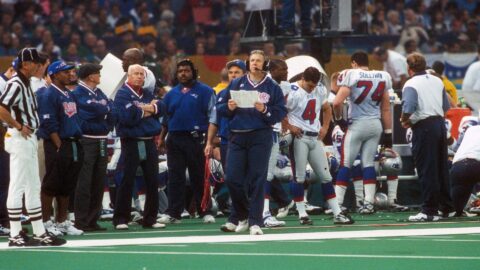Editor's note: Each day this week, Tony Lee will examine one part of Bobby Jenks' journey to major league stardom. On Thursday, the story was told of Jenks silencing the doubters and critics.
Much has been made of Jonathan Papelbon's numbers after what was undeniably his worst season as a major leaguer. Some have even said that the signing of Bobby Jenks signals a potential upgrade at the closer position in 2012, or even earlier if Papelbon is traded.
What many fail to recognize is that Jenks had a similar decline in 2010 and ended it on the shelf. His ERA soared to a career-high 4.44 and he managed to save 27 games (the fourth straight season he has had a drop in that category) before shoulder woes cut short his season in September. In a way, the two hard-throwing right-handers with penchants for slightly off-the-wall behavior entered the offseason at a similar crossroads.
The similarities do not end there. What makes Papelbon a great option for the Red Sox, even when he is a bit off his game, has the potential to make Jenks a special addition to the bullpen as well. Neither is afraid of his surroundings.
"It's not every day you can bring in someone of this caliber without a closer opening," general manager Theo Epstein recently said. "Bobby's someone that's got great stuff, but we see him as more than just a thrower. He really knows how to pitch, as well. He goes right at guys and throws strikes, brings the kind of fearlessness to the mound that we look for in a market like Boston, so we think he's gonna fit in great and hopefully be part of a pen that's one of the best ones we've had around here in a long time."
Indeed, within Jenks' career numbers is an indication as to how well he can adjust, a sure sign he should fit well in a new role. He can be among the premier strikeout pitchers in the game, as evidenced by the fact that he averaged 10.4 strikeouts per nine innings in his otherwise difficult 2010 campaign, a high for a full season. On the other end of the spectrum is 2008, when he posted a career-low 2.63 ERA but punched out just 5.5 men every nine frames, also the lowest mark of his career by a wide margin.
Depending on the situation, Jenks can pitch to contact or attempt to blow away his opponent, and he can have success in both routes. One may consider that the mark of a closer, but all too often it is the setup man that gets outs in varied circumstances, allowing the closer to work a clean ninth. In that regard, Jenks may actually be more suited for his new role.
He has been adjusting his entire career.
During an incredible maturing process in Chicago, Jenks got to the point where he could eschew the glory of the closer for a fresh start as an "understudy" in a new town. He kicked alcohol to the curb, found religion and committed himself to his family, turning the rocky days of his youth into a distant memory. Jenks also dropped some of the extra weight he had been carting around for a few years, a result of not drinking and keeping a keen eye on what he eats.
"It was a lifestyle choice I wanted to make — not just for myself but for my family," Jenks said about a recent health kick.
The 2011 season will offer up another opportunity for Jenks to adjust. New city. New role. New teammates. His track record both on and off the field suggests he won't have any issues. That's what fearlessness can do for you.



